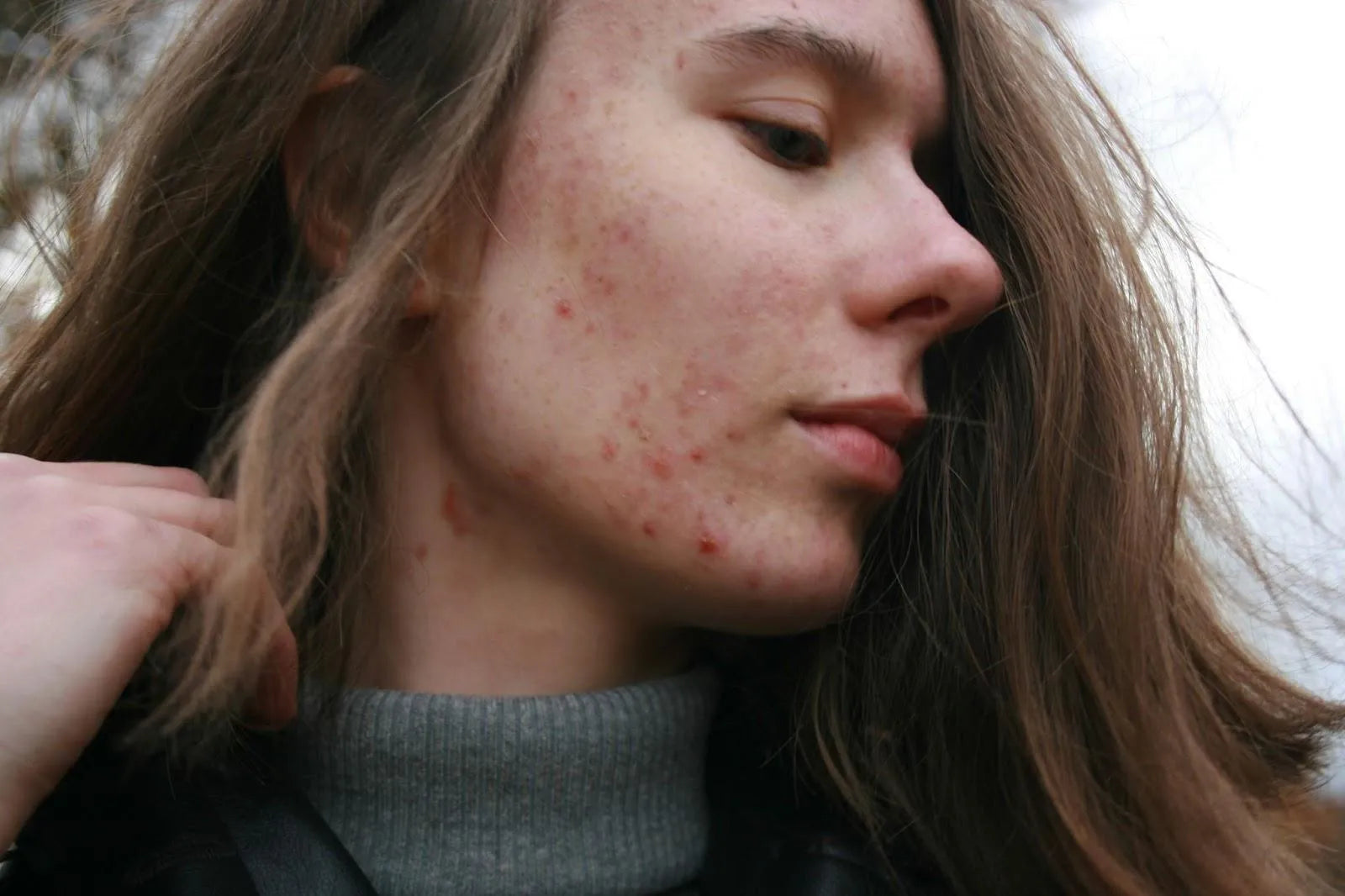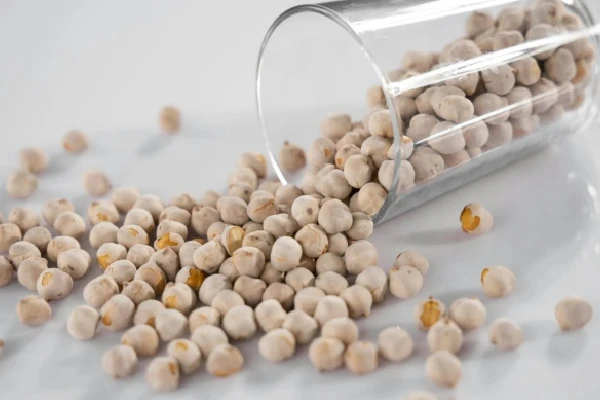Gut Instincts: How SIBO Influences Acne and What You Can Do About It
Friday Apr 5, 2024

In your quest for radiant, blemish-free skin, you've likely explored a plethora of skincare products and routines. Yet, the secret to clear skin might not be in your bathroom cabinet but rather in something more central: your gut health. Understanding the intricate gut-skin axis serves as a pivotal step towards not just improving your complexion but enhancing your overall well-being. This connection, deeply rooted in your body's internal ecosystem, underscores the profound impact your gut health has on your skin's appearance and health.
Small intestinal bacterial overgrowth, or SIBO, stands as a prime example of how gut imbalances can manifest externally, affecting your skin. Characterized by excessive growth of bacteria in the small intestine, SIBO not only disrupts your digestive system but also has a notable impact on your skin, potentially leading to acne and other skin concerns [1]. The relationship between SIBO and acne underscores a vital concept: healing your gut could be the key to unlocking the door to clearer, healthier skin.
By understanding the role your gut health plays in influencing your skin, you can explore more holistic and effective strategies for achieving the luminous skin you desire. This journey begins with a foundational understanding of the gut-skin axis and the impact conditions like SIBO can have on your skin's health.
What is SIBO, and How Does It Affect Acne?
When you hear about small intestinal bacterial overgrowth, or SIBO, it might seem distant from the realm of skincare and acne management. However, the link between SIBO and acne is far more significant than one might assume at first glance, deeply intertwining the concepts of gut health and skin health. SIBO occurs when an abnormal increase in the population of bacteria takes place in your small intestine, a condition that's not only uncomfortable due to its gastrointestinal symptoms but also impactful on your skin's health. [2]
At its core, SIBO disrupts the delicate balance of your gut microbiome, the community of microorganisms living in your digestive tract. This imbalance can lead to a plethora of digestive issues, but importantly, it also affects your skin. When harmful bacteria overpopulate the small intestine in SIBO, they can cause inflammation and increase the permeability of the intestinal lining, allowing toxins and bacteria to enter your bloodstream. These toxins can trigger your immune system and lead to inflammation throughout your body, including your skin, contributing to acne flare-ups.
The scientific link between SIBO and acne prevalence is supported by numerous studies that show individuals with acne are more likely to experience gut imbalances, including SIBO [3]. This connection suggests that healing your gut is a crucial step towards achieving clearer skin. By addressing the root cause of SIBO through dietary changes, probiotics, and, in some cases, antibiotics under the guidance of a healthcare professional, you can restore the balance of your gut microbiome. This, in turn, reduces systemic inflammation and can significantly improve the condition of your skin.
Understanding and tackling SIBO goes beyond mere symptom management; it's about nurturing your body from the inside out. Embracing a holistic approach that includes healing your gut can lead to lasting improvements in both your digestive health and your skin's appearance. By focusing on gut health skin care strategies, you're not just treating acne at the surface level but addressing one of its potential underlying causes, paving the way for a healthier, more radiant complexion.
The Role of Inflammation in Acne Development
Building on the understanding of SIBO and its connection to acne, it becomes imperative to delve deeper into the role of inflammation in acne development and the pivotal link between leaky gut syndrome and acne.
Inflammation is a natural defensive mechanism of the body, reacting to unwanted pathogens or injuries. However, when this response becomes chronic or is triggered unnecessarily by dietary factors and gut imbalances, it can lead to detrimental effects on the skin, including the development of acne. Chronic inflammation exacerbates the production of sebum and the proliferation of acne-causing bacteria on the skin, creating a prime environment for acne outbreaks. [4]
Diet plays a crucial role in the management of SIBO and the inflammatory responses linked to acne. Foods high in refined sugars, dairy products, and unhealthy fats can trigger an increase in inflammation, worsening both SIBO symptoms and acne. These dietary components can disturb the gut microbiome balance, promoting the overgrowth of harmful bacteria that contribute to SIBO and, consequently, leading to increased intestinal permeability, or leaky gut, which further exacerbates skin inflammation and acne development.
Leaky gut syndrome and SIBO share a closely related pathophysiology. The overgrowth of bacteria in the small intestine seen in SIBO can damage the mucosal lining of the gut, leading to increased permeability of the intestinal wall. This "leaking" gut allows toxins, undigested food particles, and bacteria to escape into the bloodstream, triggering systemic inflammation that can manifest as leaky gut acne. [5]
Practical Steps to Improve Gut Health and Reduce Acne
Achieving a radiant, acne-free complexion often requires a journey that goes much deeper than the surface of your skin. It necessitates a holistic approach, focusing on the interconnectedness between your gut health and skin.
Consultation with Healthcare Providers and Specialists
Your journey starts with a visit to your primary care physician. This initial step is pivotal as your primary care doctor assesses your overall health, identifies any underlying conditions that might be contributing to your skin issues, and provides referrals to specialists for more targeted interventions.
Following this, a visit to a gastroenterologist may be recommended, especially if there's suspicion that conditions such as SIBO or leaky gut syndrome could be at the heart of your skin issues. A dermatologist's role in this journey is equally critical. Specializing in skin conditions, dermatologists provide targeted treatments for acne, understanding that its root causes may extend beyond the surface of the skin. Their approach can encompass both topical treatments and systemic therapies, with a consideration of how gut health may influence skin conditions, ensuring a holistic treatment plan.
To complement the medical treatments and insights provided by these specialists, consulting with a nutritionist or dietitian can offer a cornerstone to managing acne from another vital perspective: diet. These experts can tailor acne dietary solutions to support gut health, suggest modifications to your eating habits, and introduce specific diets, if necessary, to address gut imbalances. Through nutritional guidance, one can support the healing of the gut, thereby addressing acne not just symptomatically but at one of its potential sources.
Your healthcare providers may perform any of the tests below, each designed to uncover distinct aspects of gut health that may be influencing skin health:
Breath Test for SIBO
The breath test for SIBO is designed to detect the presence of an excessive bacterial population in the small intestine. The test works by measuring the levels of hydrogen and methane in the breath after the ingestion of a sugar solution, which feeds the bacteria if present. Elevated levels of these gasses can indicate SIBO.
Comprehensive Stool Test
A comprehensive stool test offers a window into the overall health of the gut microbiome by analyzing a stool sample. This test looks for a variety of factors, including the presence of beneficial and harmful bacteria, yeasts, and parasites, as well as markers of inflammation and digestive function.
Food Sensitivity Testing
Food sensitivity testing aims to identify specific dietary triggers that may worsen gut health issues and, consequently, skin health. Unlike food allergies, food sensitivities can lead to delayed reactions that subtly exacerbate conditions like acne through chronic, low-grade inflammation or by further disturbing the gut microbiome. This test typically involves either a blood test that measures the immune response to various foods or an elimination diet monitored by a healthcare professional. Identifying and eliminating these triggers can significantly improve gut health and, by extension, reduce acne flare-ups.
Leaky Gut Urine Test
A leaky gut urine test assesses the integrity of your gut lining, which, when compromised, can lead to systemic inflammation affecting the skin. These tests typically involve consuming a solution containing non-absorbable molecules; their presence in the urine afterward indicates a leaky gut.
Lifestyle and Dietary ChangesAdopting a lifestyle that nurtures both gut and skin health is a multifaceted endeavor, requiring attention to diet, hydration, physical activity, stress management, and sleep. Central to dietary considerations is the adoption of a low FODMAP diet, which involves reducing the intake of certain carbohydrates known to ferment in the gut. FODMAP stands for “fermentable oligosaccharides, disaccharides, monosaccharides, and polyols,” which are short-chain carbohydrates that, when poorly absorbed in the gut, can lead to symptoms associated with conditions like SIBO. By limiting these foods, individuals may experience relief from digestive discomfort and a reduction in acne flare-ups, as gut health directly impacts skin conditions. [6]
Examples of low FODMAP diets include the following:
- Fruits like bananas (unripe), oranges, grapes, strawberries, blueberries, and pineapple.
- Vegetables like carrots, eggplant, potatoes, tomatoes, zucchini, spinach, bell peppers, and cucumbers.
- Proteins like eggs, firm tofu, and most plain cooked meats, poultry, and fish (without added high FODMAP ingredients).
- Dairy or dairy alternatives such as lactose-free milk and dairy products, hard cheeses (e.g., cheddar, parmesan), and almond milk (in small quantities).
- Grains like quinoa, rice, oats, and sourdough bread (preferred spelling).
- Nuts and seeds (in small servings) like almonds, walnuts, pumpkin seeds, and peanuts.
- Others like maple syrup (in moderation), dark chocolate (in moderation), and olive oil for cooking.
Further dietary adjustments can amplify the benefits, particularly through the incorporation of acne dietary solutions. Emphasizing a diet rich in omega-3 fatty acids, antioxidants, and essential vitamins can significantly combat inflammation, a key factor in acne development. Conversely, reducing the intake of sugar, dairy, and processed foods—known triggers for acne—can further support skin health.
Hydration plays a critical role in this holistic approach to wellness. Sufficient water intake is essential not only for maintaining optimal gut health but also for supporting the body's detoxification processes and contributing to clearer skin. Complementing dietary and hydration efforts with regular exercise enhances circulation and reduces stress.
Managing stress through practices such as meditation, yoga, or deep-breathing exercises is another crucial component. Stress adversely affects gut health, which can exacerbate skin conditions like acne. In the same vein, the importance of adequate sleep cannot be overstated. Ensuring 7-9 hours of quality sleep per night is vital for the body's natural healing processes.
Skincare Tips for Acne Management
While addressing gut health is crucial, topical skin care remains an important aspect of managing acne.
Use a gentle, non-comedogenic cleanser twice daily to remove impurities without stripping the skin's natural oils. Incorporate mild exfoliation to remove dead skin cells and prevent clogged pores; however, avoid over-exfoliation, which can irritate the skin and worsen acne.
Opt for oil-free moisturizers to hydrate your skin without adding extra oil to acne-prone areas. Products containing salicylic acid or benzoyl peroxide can target acne directly, reducing inflammation and bacterial growth. When going out, always apply a broad-spectrum sunscreen to protect your skin from harmful UV rays, which can exacerbate acne marks.
The Importance of Personalized Probiotics in Gut Healing
Probiotics are beneficial bacteria that support the health of the gut microbiome. In the case of SIBO, probiotics help restore balance by crowding out harmful bacteria, reducing the bacterial overgrowth that disrupts gut health and contributes to skin issues. For leaky gut syndrome, probiotics strengthen the gut barrier, preventing toxins and undigested food particles from leaking into the bloodstream and triggering inflammation that can manifest as acne on the skin. [7]
Personalized probiotics take this a step further by offering a tailored approach that recognizes the individuality of each person's gut microbiome. This revolutionary strategy moves beyond generic, one-size-fits-all probiotic supplements, diving deep into the unique ecosystem of bacteria residing in your gut.
The formulation of these personalized probiotics begins with a comprehensive analysis of your gut microbiome, often through advanced stool testing. This analysis identifies the specific bacterial strains that are overrepresented or underrepresented in your gut, providing insights into the microbial imbalances that may be contributing to digestive issues, SIBO, and leaky acne. Armed with this information, a customized probiotic supplement is created, containing the precise strains of beneficial bacteria needed to restore balance to your gut microbiome.
From the Inside Out
The journey toward achieving vibrant, healthy skin is deeply intertwined with the well-being of your gut. As we've explored, the gut-skin connection is a powerful testament to the body's interconnected nature, revealing how imbalances within the gut can manifest as skin conditions such as acne. This relationship underscores the importance of nurturing your gut health as a foundational step toward not only enhancing your skin's appearance but also promoting overall health and well-being.
Healing your gut requires a holistic approach, encompassing a balanced diet, regular exercise, adequate hydration, stress management, and sufficient sleep. By adopting lifestyle changes that support gut health, such as following a low FODMAP diet to alleviate symptoms of SIBO, incorporating personalized probiotics to restore gut microbiome balance, and eliminating known dietary triggers, you create an environment where your skin can thrive. These steps not only aim to address the root causes of skin issues but also offer a path to lasting skin health that radiates from within.
As you embark on this journey, remember that the path to clear skin is a personal one, requiring patience, persistence, and a willingness to explore what works best for your body. Encouragement lies in the knowledge that by focusing on gut health, you are taking a powerful step toward not just improving your skin but enhancing your overall quality of life. Let the pursuit of gut health empower you, knowing that each positive change you make contributes to a healthier, happier you, reflected in the radiance of your skin.
Unlock the secret to radiant skin and optimal gut health with Floré's Custom Probiotics Program! Embrace a personalized approach to wellness with our subscription-based service, tailored to meet your unique gut microbiome needs. Say goodbye to one-size-fits-all solutions and hello to personalized probiotics that support gut health, reduce inflammation, and empower your skin to glow from within.
About the author: Dr. Ali is a medical journalist and copywriter.


